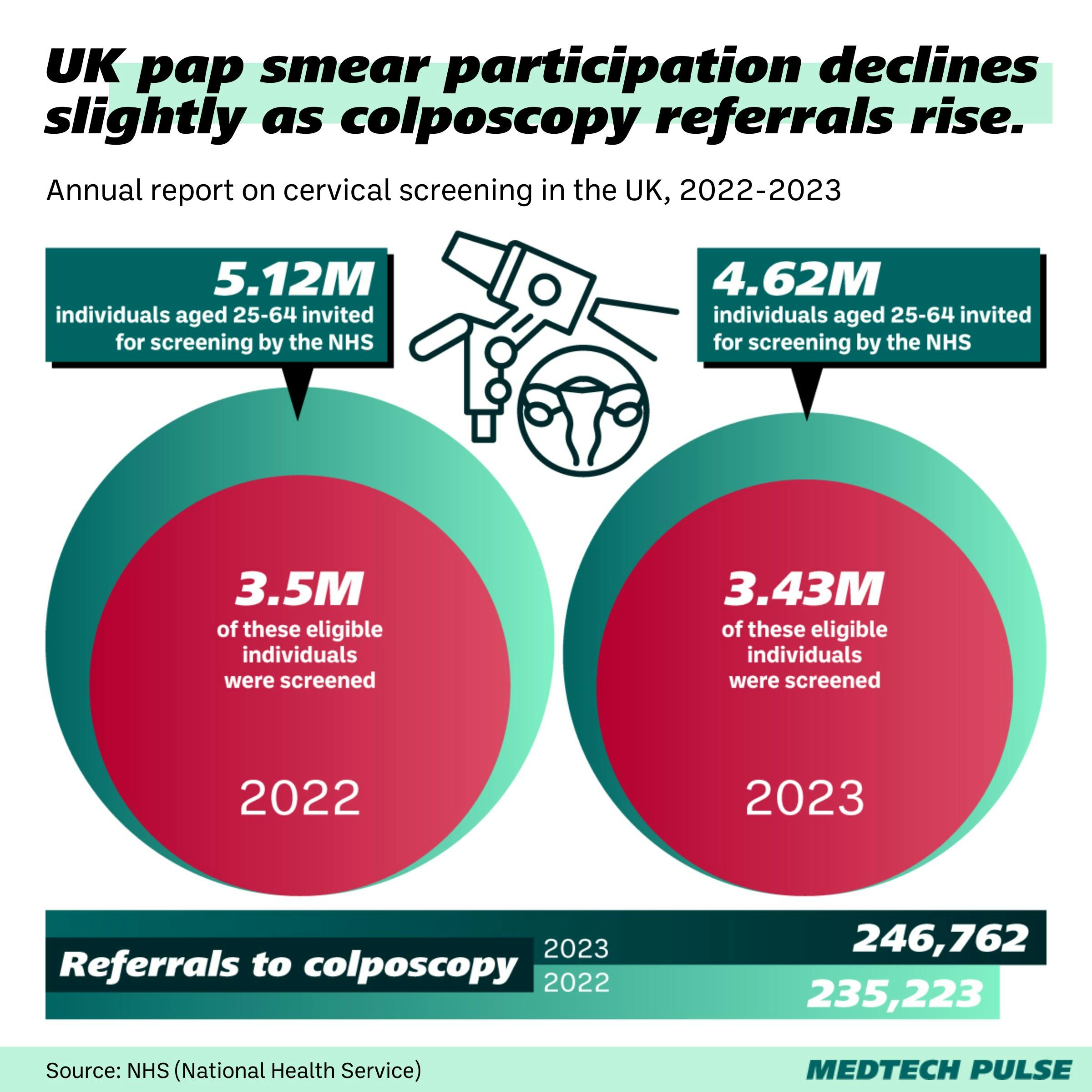Goodbye, pap smear pain. This at-home alternative finds HPV in menstrual blood.
You can already screen for STIs via high-tech tampon. At-home HPV testing is next.
At least, that’s the future envisioned by Papcup, an innovation coming out of the University of Edinburgh’s Venture Builder Incubator (VBI).
With Papcup, patients can skip the titular pap smear in favor of a non-invasive, pain-free home test.
Is there really a need for this kind of test? And how does it measure up to traditional HPV screening? Read on for these answers and more.

The problem with pap smears
Pap smears are effective at detecting HPV and the earliest signs of cervical cancer. As with many cancers, early detection gives cervical cancer patients the best chance of beating it.
However, as with any screening, it’s only effective if patients do it. Many women skip this potentially life-saving annual screening because of the pain and discomfort of clinical pelvic exams and the pap smear procedure itself.
In the U.K., where Papcup was developed, the potential market for the product is clear. Approximately 4.62 million people are eligible for pap smears, per the NHS. Many of those patients do come in, but a significant portion do not.
Elsewhere, including the U.S., the skipped screenings also add up. A survey by Hologic revealed that 43% of American women have skipped or delayed recommended health screenings—including those for cervical cancer. 1 in 5 of those women reported anxiety was behind their decision to skip, and 17% referred to concerns about pain or discomfort.
An at-home HPV test
Would an at-home, self-administered alternative actually be more comfortable?
Here’s how a traditional pap smear works: A provider uses a small, soft brush to scrape a sample of cells from the cervix while a speculum holds the vaginal walls apart.
It was a pap smear experience that inspired founder Sanziana Foia’s idea for the product. “It was an uncomfortable experience and from my knowledge of biosensors and technology, I was confident that the same health information could be gathered in a less invasive way, and without the need to visit a healthcare setting—which in itself can be a barrier for many women to get tested,” she said.
In comparison, Papcup relies on a sample of menstrual blood. In that sample, the testing device can detect HPV strains with PCR-grade precision, at the standards required by the NHS and WHO, the Papcup website claims. Plus, for users without a period, Papcup testing is also compatible with a shallow vaginal swab. Within 15 minutes, the device produces a full test report, which can be shared with a provider.
The difference in likely comfort—both physical and psychological—is clear. But what about effectiveness?
At the moment, the technology is at the prototype stage. Testing effectiveness with respect to multiple HPV strains and across different human bodies is still in the Papcup team’s future. We’re sorry to report you can’t order your Papcup just yet.
However, the young company is riding a wave of excitement for both home testing and de-stigmatizing women’s health screening—seen through the success of companies like Evvy and Daye. We’ll be watching to see where this product goes.